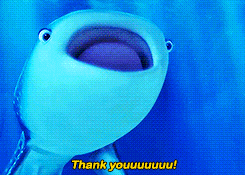This week, we’re back to connecting with other young alumni, and hearing about their experiences in our series My First Year Out.
Sarah Weiss, a 2016 graduate, has been exploring the depths of the ocean, from Massachusetts to the Bahamas!
Describe your first year out:
My first year out of UVM has been quite the whirlwind experience and by far the fastest year of my life. Despite living in VT for the past 15 years, I’ve decided to get my feet wet and pursue the world of marine biology.
After traveling abroad with my family right after graduation, I moved to Plymouth, MA to delve into the world of whales. I interned with the non-profit organization, Whale and Dolphin Conservation.
This proved to be an incredible experience and only further confirmed my love of whales and mola molas (google it). In this opportunity, I was a field researcher and naturalist working on whale watching boats around Cape Cod, collecting photo-ID and population-monitoring research primarily on the population of humpback whales in the Gulf of Maine. I was incredibly fortunate to go on 62 whale watches last summer, seeing whales (and sharks, and dolphins, oh my!) on every trip.
Let me tell you, dreams do come true.
After the internship with WDC, I moved to Woods Hole, MA (the bottom tip of Cape Cod) to intern at the National Oceanic and Atmospheric Administration (NOAA)’s Northeast Fisheries Science Center doing whale acoustic research.
After a few months of analyzing the singing behavior of sei whales, I packed up and moved to the island of Eleuthera in the Bahamas to do shark, ray, and deep sea research with the Cape Eleuthera Institute.
This was truly a once-in-a-lifetime experience as I got to be out in the field everyday working with so many diverse species in their natural habitats. The sharks of course were incredibly exciting, especially the days we caught a 10.5 ft tiger shark and and an 11 ft great hammerhead shark! The picture above is me being completely dwarfed by the dorsal fin of that Great Hammerhead.
The deep sea research in particular really blew my mind as well, as there is so little known about this huge environment that covers such a large percentage of the planet.
[Fun fact: 72% of the planet is covered by water. Of that 72% of water, 98% is considered to be the deep sea (anything below 200m). Yet only 5% of the deep sea has ever been explored!]
In this sense, our deep sea research essentially aimed to figure out what exists down there, and where exactly we can find it.
5 months, thousands of giant isopods, and 14 stitches later (life wasn’t always a beach), I finally came home from the Bahamas, only to quickly take off once again to travel to Hawaii and Israel, visiting friends and taking advantage of international rugby opportunities.
Though I was heartbroken to leave the ocean and the Israeli hummus behind, I was ecstatic to have the chance to return home to VT for a few weeks to (ideally) catch my breath and relax before taking off on my next adventure.
What was your biggest challenge, and how did you overcome it?
One of my biggest challenges so far has been dealing with transitions.
I am horrible with change and as you can probably tell, my life since graduation has been filled with nothing but transitions. From new places, new jobs, and constantly changing casts of characters to interact with, change has become a constant and flexibility a necessity in my life.
While I have not completely overcome this challenge by any means, I aim my focus on taking life one day at a time.
What are you doing now?
I just recently moved back to Woods Hole, MA where I have returned to working with NOAA’s Northeast Fisheries Science Center and the Passive Acoustic Research group. My current project focuses on North Atlantic right whales and using passive acoustic monitoring devices to study their migratory corridors.
Essentially, I am slowly learning how to speak whale day by day.
I’m excited to see what else I can be exposed to while I’m here, as I continue to test the waters and see if the world of marine biology is right for me.
Thanks for sharing with us, Sarah, and we hope you can report back once you’ve learned how to speak fluent whale, and let us know what they have to say.



You must be logged in to post a comment.